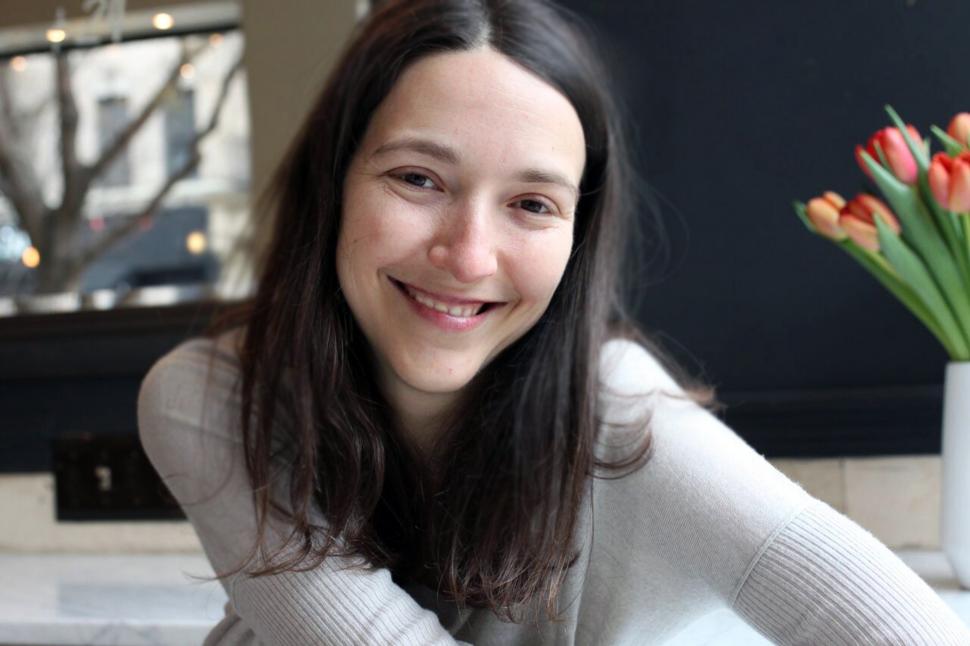An Interview with Nomi Stone (Poetry ’17)
2017 poetry alum Amanda Newell recently interviewed fellow 2017 graduate Nomi Stone for Plume. Read an excerpt of their conversation below:

AN: I’m interested in the ways in which your poetry contemplates the relationship between the self and the community and the ways in which community shapes identity. Your first two poetry collections, Stranger’s Notebook (TriQuarterly 2008) and Kill Class (Tupelo Press, 201), both involve a speaker who is welcomed, to some degree, into an “other” community—and in the case of Kill Class, she is observing a military community, but always aware of her difference. This requires a sort of double vision, no?
NS: I love this question of double vision, Amanda. My first two collections of poetry were yes driven by the charge of the insider-outsider position and also questions of identity: in Stranger’s Notebook, although I am Jewish and the daughter of a reform Rabbi, I spent time in a more traditional Jewish community in North Africa to press on the valves of something that I wanted to understand: what is faith, what is ritual, what is belonging, what is relationship to homeland, and why did these questions produce such friction for me? In Kill Class, I was doing my anthropological fieldwork for my dissertation, and I observed some US military pre-deployment training exercises in mock Middle Eastern villages around America to write about war.
Anthropology’s key method for fieldwork is so-called “participant-observation”—and the poems in Kill Class are poems of witness, poems of uneasy participation, and poems of complicity. I am not in the American military (observer) and I write to critique the military (critique); however, I am an American citizen. As such I am entangled (participant). This brings me to your question of double vision, which paradoxically creates both twofoldness but also sometimes halfness. The so-called “field” was always elsewhere, and I was at its edge, working through self/other, here/there, field/life, work-self/ private-self, where one is perhaps often engaging with both, but sometimes only one at a time, and potentially occluding or sidelining the other.
My new collection of poems in progress, Fieldworkers of the Sublime tries to explode “fieldwork” beyond anthropology, pushing against the binary between Field and Life, and letting being-alive overflow in every direction. It is a book about awe, about fear, and also the ways we are each observers and participants in the sublime (through nature, science, the social world, and intimate life). It is a manuscript about love and my new marriage and queerness and desire and my attempts to overcome my own limits, as well as the thinkers (mostly anthropologists and philosophers) who shape my imagination.
The poems are also populated with marine biologists and octopus dissections, botanists and chanterelle-foragers— and my encounters with scientists and others I’ve become friends with on the island of Mull off the West Coast of Scotland, my wife’s beloved home. But this book is not trying to understand a particular community or a problem the way my other two were: it is instead a bid for an embodied poetics with fewer partitions and more encounters. My poems have become more capacious, letting everything in: the ocean and gooseberries of the island, but also the shopping malls and playgrounds of my suburban childhood—each spangling open through conversations and memory and dreaming and feeling and loving and reading.
You can read the interview in its entirety here: https://plumepoetry.com/on-queer-poetics-writing-courageously-and-becoming-otherwise-an-interview-with-nomi-stone-by-amanda-newell/



